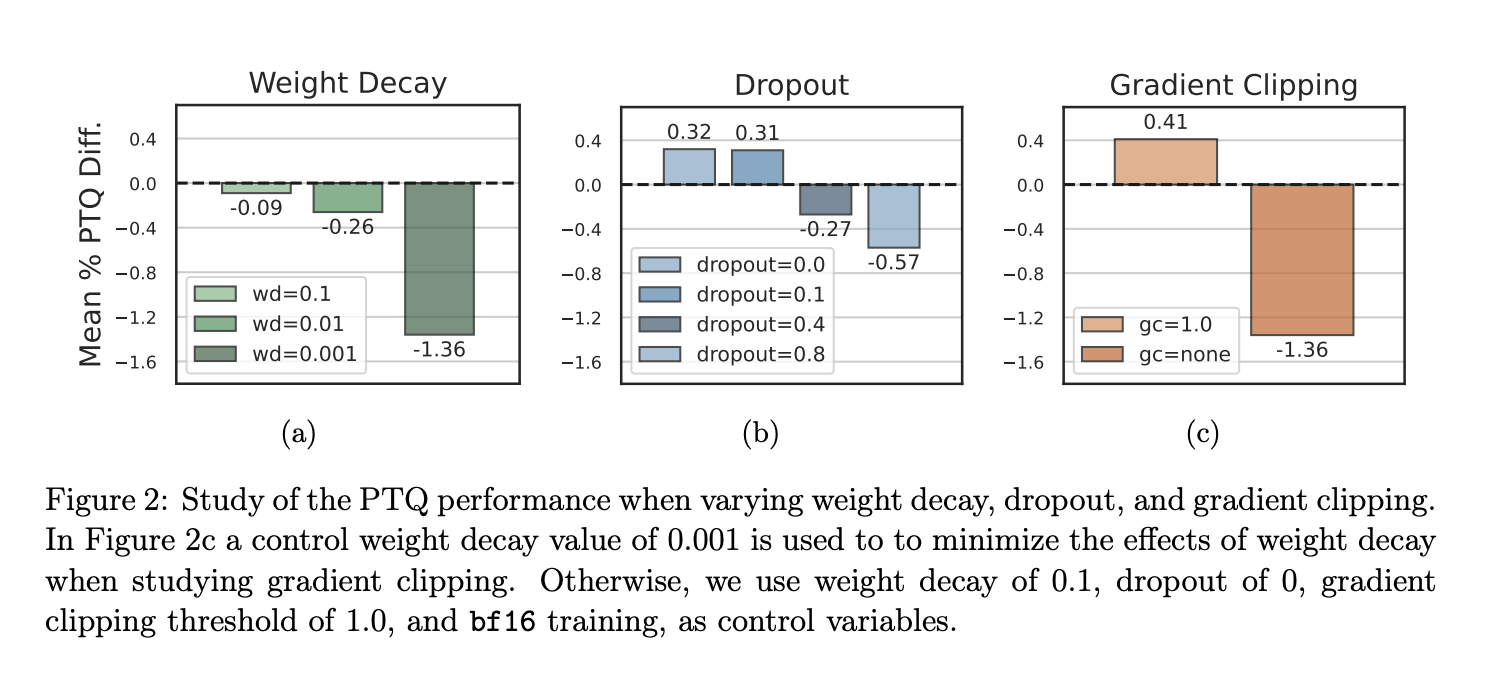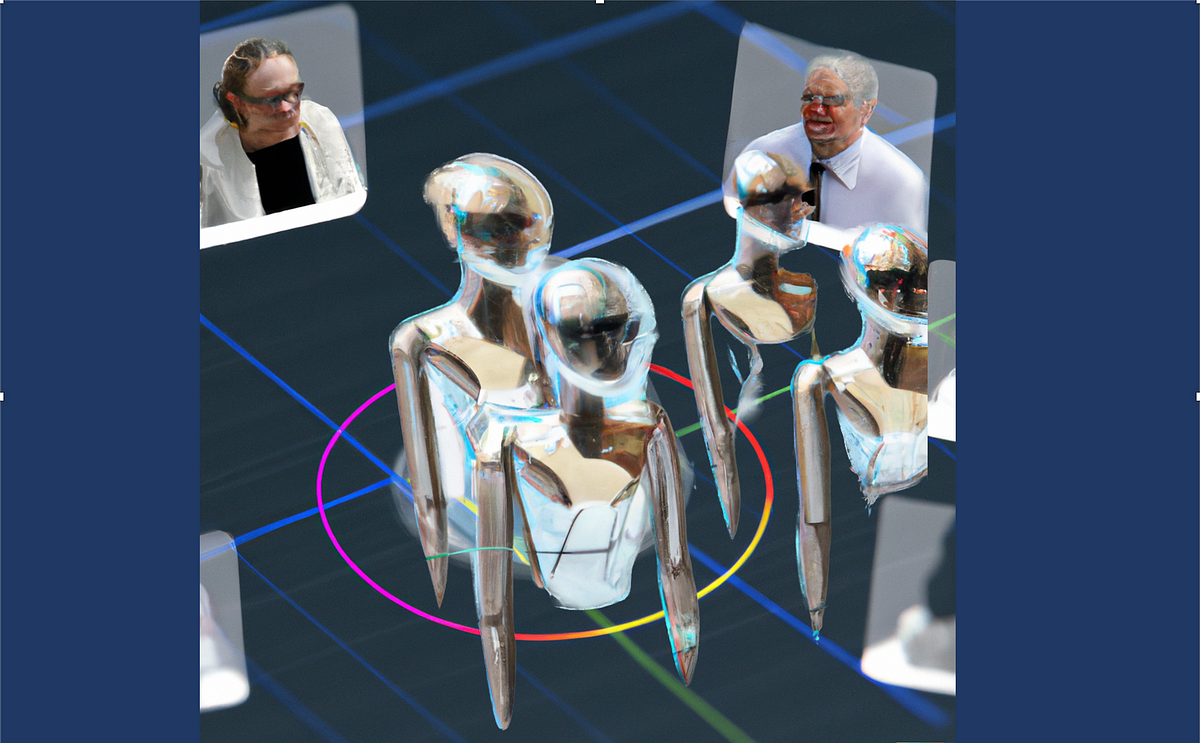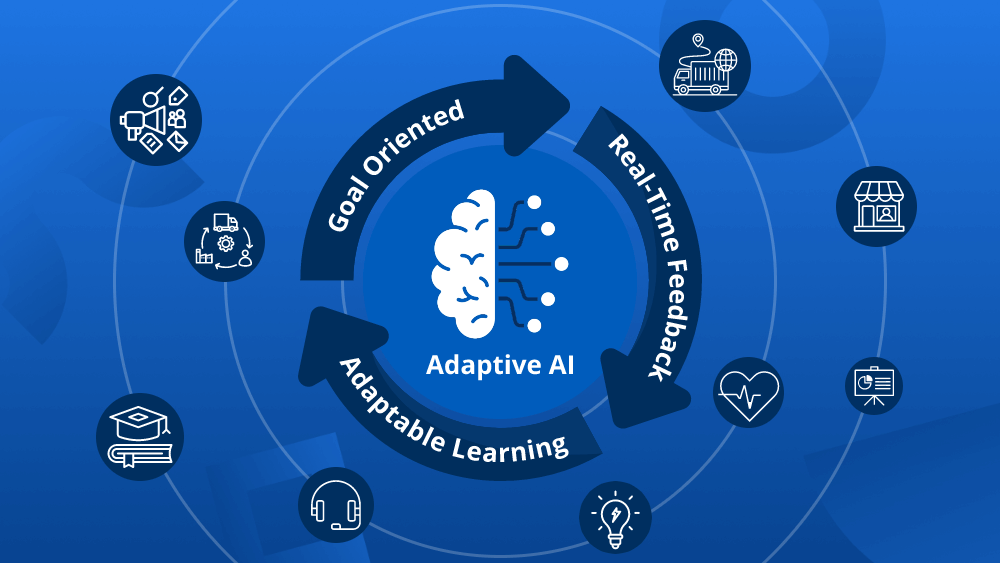Artificial intelligence’s ascent of large language models (LLMs) has redefined natural language processing. However, deploying these colossal models poses a challenge, with post-training quantization (PTQ) emerging as a critical factor affecting their performance. Quantization, the process of reducing model weights and activations to lower bit precision, is crucial for deploying models on resource-constrained devices. The difficulty lies in reconciling contradictory observations about whether sensitivity to quantization is an intrinsic property at scale or a consequence of optimization choices made during pre-training.
In their pursuit of unraveling the mysteries of PTQ sensitivity, a team of researchers from Cohere AI presents a meticulous experimental setup. They explore optimization choices, including weight decay, dropout, gradient clipping, and half-precision training, to understand their impact on pre-training performance and subsequent quantization robustness. The proposed method challenges the notion that certain properties are solely determined by model scale, asserting that the optimization choices made during pre-training significantly influence quantization performance. This nuanced approach seeks to provide a deeper understanding of the interplay between model architecture, optimization strategies, and quantization outcomes.
The researchers delve into the method’s intricacies by thoroughly analyzing the impact of various optimization choices. Weight decay, a common technique to prevent overfitting, is scrutinized, revealing that higher levels of weight decay during pre-training lead to improved post-training quantization performance. The study systematically explores the effects of dropout and gradient clipping, demonstrating that these regularization techniques play a crucial role in quantization stability. Another key aspect explored is the choice of half-precision training data type, comparing the performance of models trained with float16 (fp16) and bfloat16 (bf16). The findings underscore that emergent features are less pronounced when training with bf16, indicating its potential as a more quantization-friendly data type.
To validate their observations, the researchers conduct experiments on models of varying sizes, ranging from 410 million to an extensive 52 billion parameters. The controlled experiments on smaller models lay the groundwork, and the derived insights are validated on larger models. The researchers emphasize the computational cost of training these colossal models, making relying on early checkpoints to infer converged model behavior imperative. Despite the challenges, the findings indicate that performance at early checkpoints predicts fully trained model performance.
In conclusion, the research team presents a nuanced perspective on PTQ’s challenges in large language models. They challenge the prevailing belief that sensitivity to quantization is solely an emergent property at scale, highlighting the intricate interplay between optimization choices and quantization performance. The insights gained from this study contribute significantly to the ongoing discourse on deploying large language models, providing a practical roadmap for optimizing their quantization performance. This work deepens our understanding of the factors influencing post-training quantization and sheds light on the broader implications of deploying large language models across diverse environments. As the AI community continues to grapple with the challenges of deploying large models in real-world scenarios, this research is a valuable guide, emphasizing the pivotal role of optimization choices in shaping the quantization landscape.
Check out the Paper. All credit for this research goes to the researchers of this project. Also, don’t forget to join our 35k+ ML SubReddit, 41k+ Facebook Community, Discord Channel, and Email Newsletter, where we share the latest AI research news, cool AI projects, and more.
If you like our work, you will love our newsletter..
Madhur Garg is a consulting intern at MarktechPost. He is currently pursuing his B.Tech in Civil and Environmental Engineering from the Indian Institute of Technology (IIT), Patna. He shares a strong passion for Machine Learning and enjoys exploring the latest advancements in technologies and their practical applications. With a keen interest in artificial intelligence and its diverse applications, Madhur is determined to contribute to the field of Data Science and leverage its potential impact in various industries.


